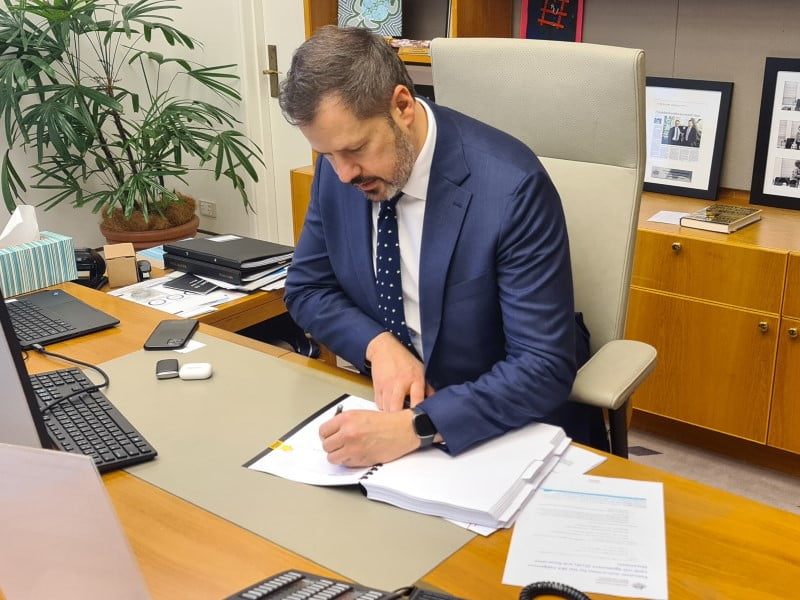Industry and science minister Ed Husic is moving at pace to modernise Australia’s legal frameworks on artificial intelligence and says Australia can build a regulatory model that could be adopted in other countries.
While there are “probably a dozen different laws that currently exist that take into account the impact of AI and have some sort of response”, the advent of generative AI tools in the mainstream requires a modernisation of Australia’s legal frameworks to deal with the risk and to maximise the potential benefits, Mr Husic said.
“I want us to be able to set up a legal framework or model of regulations that can be used by other countries as well. We should be world leaders in this space, taking into account what’s happening overseas, but levering off our own background,” he said.
The release of the two discussion papers on Thursday marked the start of an eight-week consultation process that Mr Husic says will put a spotlight on the potential harms of AI to ensure “the use of technology works for us and not the other way around”.

He addressed media following the release of a ‘Safe and Responsible AI in Australia’ discussion paper and a rapid response information report on Generative AI produced by the government’s National Science and Tech Council.
The aim is that the consultation and any subsequent regulatory and legislative changes will create “a greater degree of confidence and trust in the way technologies used to deliver benefit to the community”.
“Australia already has strong local laws and guardrails in place, but what we’re asking in this discussion paper is, are they enough?” Mr Husic said.
He said while the discussion paper classifies the risk level of some AI use-cases, part of the public consultation is to “invite people to identify those areas, those risks that exist in terms of the way that the technology is used, and then obviously that will guide our response”.
Mr Husic is calling for harms and opportunities to be considered in the design of AI technologies, noting that it is not as easy as just opening the algorithmic black box.
The consultation could also consider the design of automated decision-making technology in making welfare assessments, and to learn the lessons from “terrible” instances such as robodebt.
“It is a reminder, it’s not always just about technology it’s about all the processes that get set up around it,” Mr Husic said.
He also noted that “in the coming weeks”, further announcements on the impacts of AI from other government portfolios will be made.
Mr Husic said that Finance minister and Minister for the Public Service Katy Gallagher was overseeing work on guidance around generative AI uptake within the Australian Public Service.
In response to questions from InnovationAus.com, Mr Husic said that there is a need to build out the public services’ AI capability and skills as well as greater “awareness and understanding of it within parliamentary circles”.
He also noted that Communications minister Michelle Rowland and Attorney-General Mark Dreyfus had “oversight of relationships between generative AI, online harms, privacy, and copyright”.
The Minister for Government Services Bill Shorten has also said that he supports the use of data and automation for assessments under the National Disability Insurance Scheme as long as there is an “ethical framework” in place.
Last week, the Standing Committee on Employment, Education and Training commenced an inquiry into the potential risks and opportunities of generative AI tools in education following a referral by Education minister Jason Clare.
“If you take into consideration what we’re putting forward to you today, a lot of the thinking around AI, particularly around the changing views around the technology have pretty much been triggered through ChatGPT, released back in November last year, here we are six months later as a national government talking about modernising our laws,” Mr Husic said.
On Wednesday, the European Union’s Margrethe Vestager, who is executive vice president of the ‘European Commission for A Europe Fit for the Digital Age’, reportedly said that a draft voluntary code of conduct for generative AI would be presented “within the next weeks”, and finalised “very, very soon”.
Global concerns on the dangers of AI are mounting, with an open letter on the existential threat of the technology, signed by AI scientists and other notable figures, released by the Centre for AI Safety. A similar letter, calling for a moratorium on AI development, was called for in March.







